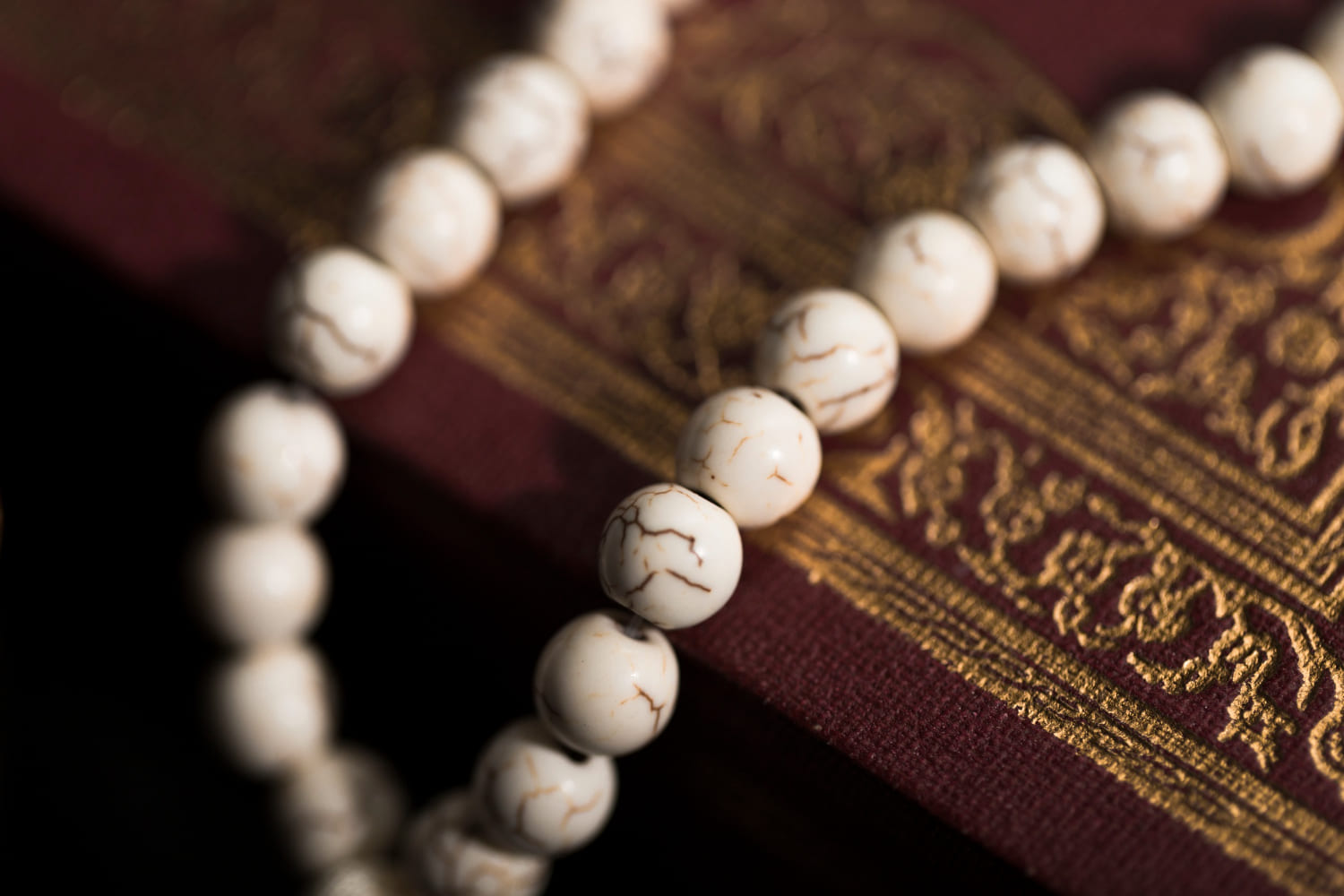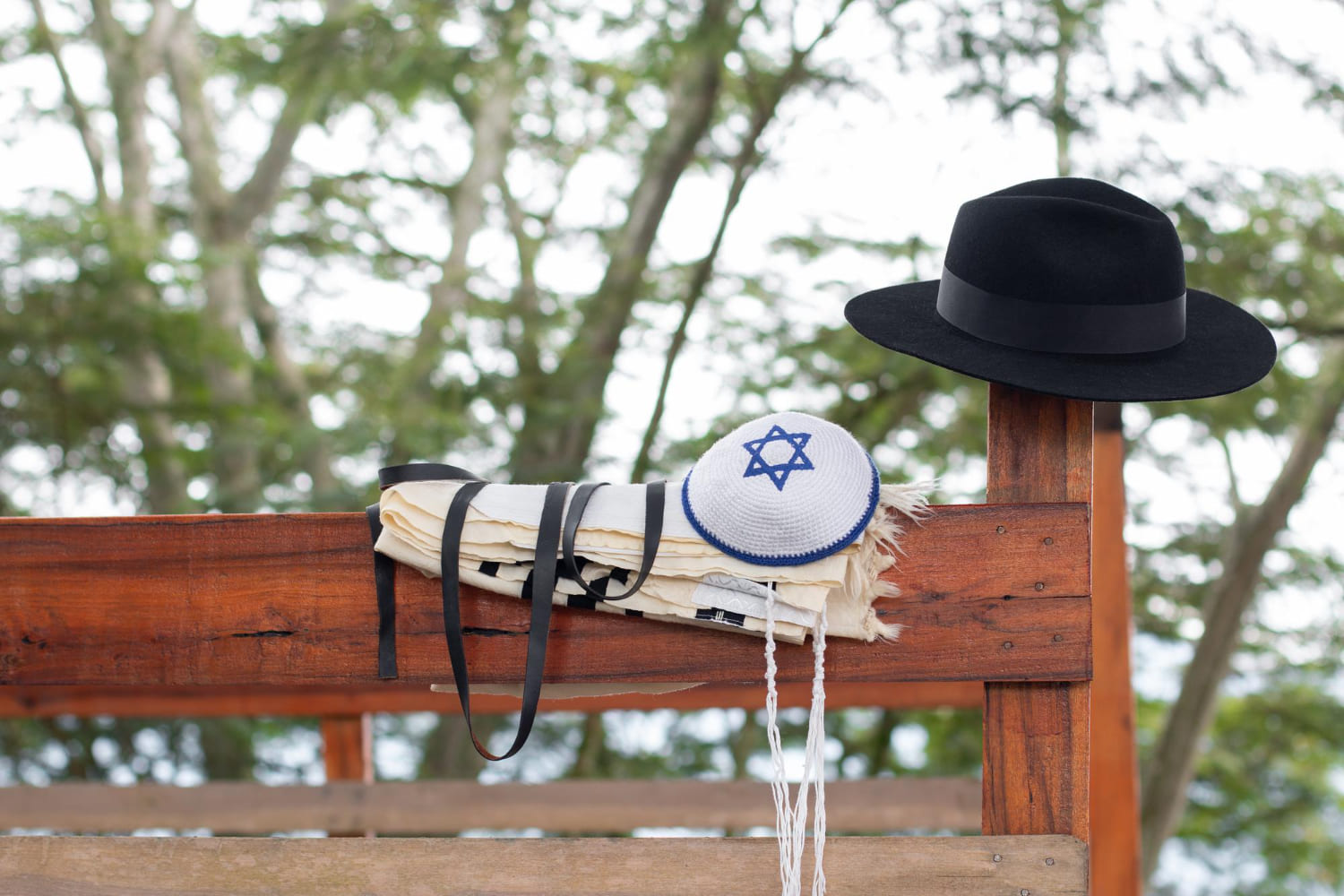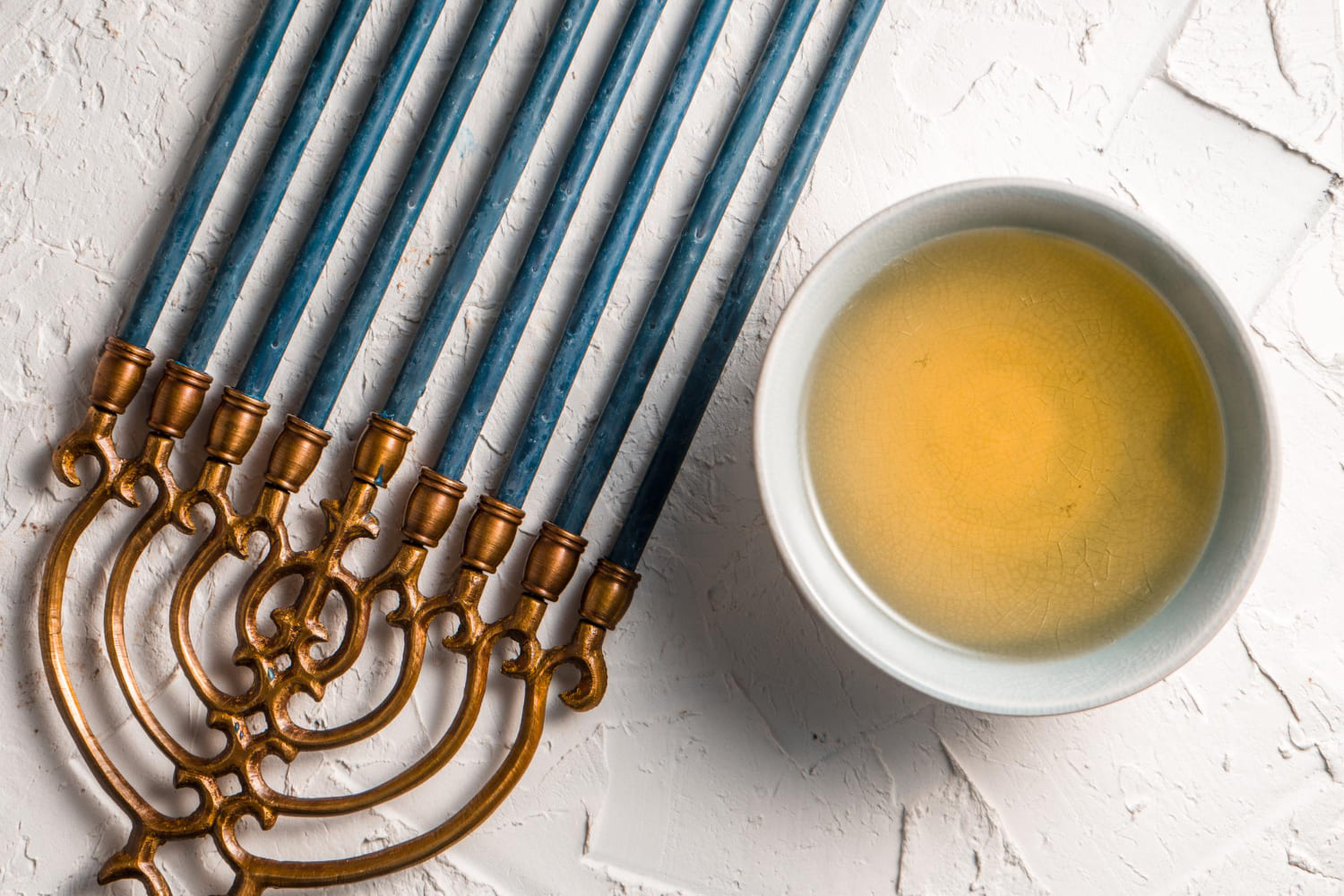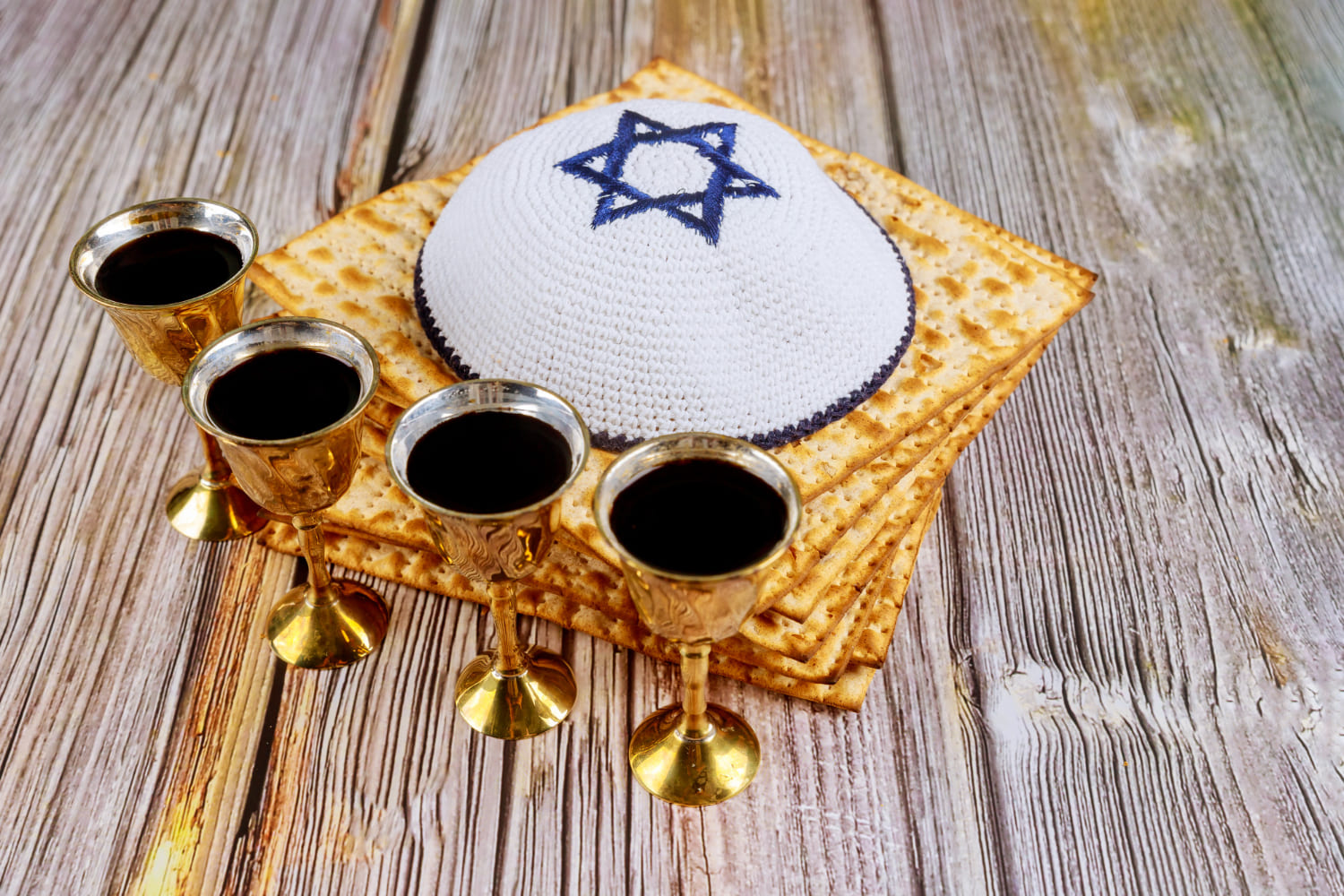Jewish prayers for healing are a significant aspect of Jewish faith and tradition. These prayers are recited to ask for divine intervention and healing for oneself or others who are suffering from physical or spiritual ailments.
The Jewish prayer for healing is known as the Mi Shebeirach, which translates to “May the One who blessed.”
The Mi Shebeirach is a prayer that is commonly recited during synagogue services, but it can also be recited at home or in hospitals.
It is a prayer that asks for healing for both the body and soul and is often recited in honor of someone who is ill. In addition to the Mi Shebeirach, there are also other prayers and psalms that are recited for healing, such as Psalm 23, Psalm 121, and Psalm 130.
These prayers are believed to bring comfort and hope to those who are suffering and to help them find strength and courage during difficult times.
Overall, Jewish prayers for healing are an important part of Jewish faith and tradition.
They provide comfort and hope to those who are suffering and help them find strength and courage during difficult times.
Whether recited during synagogue services or at home, these prayers are a powerful way to ask for divine intervention and healing for oneself or others who are in need.
- Full List of Jewish Prayers For Healing
- Mi Sheberach
- Ana Bekoach
- Refuah Shlema
- Tehillim
- Birkat Hagomel
- Guide to Jewish Prayers For Healing
- When to Recite
- How to Recite
- Who Can Recite
- Role of Community in Healing Prayers
- Understanding Jewish Prayers For Healing
- Significance of Jewish Prayers For Healing
- Influence of Jewish Healing Prayers on Modern Medicine
- Conclusion
Full List of Jewish Prayers For Healing
Jewish prayers for healing have been used for centuries to seek divine intervention for physical, emotional, and spiritual ailments. These prayers are often recited during times of illness or distress, and are believed to bring comfort, hope, and strength to those who recite them.
Here is a list of some of the most commonly used Jewish prayers for healing:
Mi Sheberach
Mi Sheberach is a prayer for healing that is traditionally recited during synagogue services or other communal gatherings. It is often recited on behalf of someone who is ill or undergoing medical treatment.
The prayer asks God to grant the person a complete and speedy recovery, both physically and spiritually.
The prayer can also be recited individually, with the name of the person for whom the prayer is being offered added to the text.
Ana Bekoach
Ana Bekoach is a mystical prayer that is believed to have powerful healing properties.
It is often recited during times of illness or distress, and is said to help bring about physical and emotional healing. The prayer is composed of seven lines, each of which contains six words.
Each line is said to correspond to one of the seven days of the week, and is believed to have a different healing energy.
Refuah Shlema
Refuah Shlema is a prayer for complete healing. It is often recited on behalf of someone who is ill or recovering from an illness, and is said to bring comfort and strength to the person reciting it.
The prayer asks God to grant the person a complete and speedy recovery, both physically and spiritually.
Tehillim
Tehillim, also known as the Book of Psalms, is a collection of prayers and hymns that are often recited during times of illness or distress.
Many of the psalms contain themes of healing, comfort, and hope, and are believed to have powerful healing properties.
The psalms can be recited individually or as a group, and are often used in conjunction with other Jewish prayers for healing.
Birkat Hagomel
Birkat Hagomel is a prayer of thanksgiving that is traditionally recited after a person has recovered from an illness or survived a dangerous situation.
The prayer thanks God for the person’s recovery or survival, and asks for continued protection and blessings. The prayer can be recited individually or as part of a communal gathering.
Overall, Jewish prayers for healing are an important part of Jewish tradition and are believed to have powerful healing properties.
Whether recited individually or as part of a communal gathering, these prayers can bring comfort, hope, and strength to those who are ill or undergoing medical treatment.
Guide to Jewish Prayers For Healing
Judaism has a rich tradition of prayer, and one of the most meaningful prayers in Judaism is the Jewish prayer for healing.
The prayer is known as “Mi Shebeirach” and is traditionally recited for those who are ill or in need of spiritual healing.
This section will provide a guide to Jewish prayers for healing, including when to recite, how to recite, and who can recite.
When to Recite
Jewish prayers for healing can be recited at any time, but they are most commonly recited during synagogue services. During services, the prayer is recited for those who are ill or in need of healing.
However, the prayer can also be recited privately, either in person or over the phone.
How to Recite
The Jewish prayer for healing is called “Mi Shebeirach,” which means “May the One who blessed.” The prayer is usually recited in Hebrew, but it can also be recited in English.
The prayer is typically recited while standing, and it is customary to say the name of the person for whom the prayer is being recited.
The prayer is usually recited by the rabbi or cantor, but it can also be recited by anyone who is familiar with the prayer. If you are not familiar with the prayer, you can find the text online or in a prayer book.
Who Can Recite
Anyone can recite the Jewish prayer for healing, regardless of their religious affiliation. The prayer is not limited to Jews and can be recited by anyone who believes in the power of prayer.
In addition to the Mi Shebeirach prayer, there are other Jewish prayers, psalms, and readings that can be recited for healing. These prayers can be found in prayer books or online, and they can be recited privately or during synagogue services.
In conclusion, Jewish prayers for healing are a powerful tool for those who are ill or in need of spiritual healing. Whether recited privately or during synagogue services, these prayers can provide comfort and hope to those in need.
Role of Community in Healing Prayers
In Jewish tradition, the community plays a significant role in the healing process. The Jewish prayer for healing, known as Mi Shebeirach, is often recited in synagogue during services. The prayer is said for those who are ill, and it asks for God’s mercy and healing.
The prayer is typically recited while the person who is ill is present, or their name is mentioned during the service.
This practice helps to create a sense of community and support for the individual. It also reminds the congregation of the importance of coming together to support those in need.
In addition to reciting the Mi Shebeirach prayer, Jewish communities often organize healing circles.
These circles bring together individuals who are experiencing illness, as well as their loved ones.
Participants share their experiences and offer support to one another. The circle may also include prayers, meditation, and other healing practices.
The role of the community in the healing process is not limited to organized prayer and healing circles. Jewish tradition places a strong emphasis on the importance of visiting the sick.
This practice is known as Bikur Cholim. Visiting the sick helps to provide comfort and support to the individual, and it reminds them that they are not alone in their struggle.
In summary, the role of the community in Jewish healing prayers is significant. It provides support, comfort, and a sense of belonging to those who are ill.
Whether through organized prayer, healing circles, or visiting the sick, the community plays an important role in the healing process.
Understanding Jewish Prayers For Healing
Judaism has a rich tradition of prayers for healing, both for physical and spiritual ailments. These prayers are often recited by individuals or the community as a whole, and they are believed to bring comfort, strength, and hope to those who are suffering.
One of the most well-known prayers for healing is the Mi Shebeirach. This prayer is recited on behalf of someone who is ill or injured, and it asks God to bring healing to the body and soul.
The prayer is often recited in synagogue services or during private prayer, and it is a powerful reminder of the importance of community support during times of illness.
Another important prayer for healing is the Refuah Shlema. This prayer asks God to bring complete healing to the body and soul of the person who is ill.
It is often recited by family members or friends of the person who is sick, and it is a way of expressing love, support, and hope for their recovery.
The Psalms are also an important source of comfort and healing in Jewish tradition. Many of the Psalms express the pain and suffering of illness and ask God for comfort and healing.
Psalm 23, for example, is a powerful reminder of God’s presence and protection during times of difficulty.
In addition to these prayers, there are many other Jewish prayers for healing that can be recited in times of illness or distress. These prayers may be specific to certain illnesses or situations, or they may be more general in nature.
Some of these prayers may be recited in Hebrew, while others may be recited in English or another language.
Overall, Jewish prayers for healing are an important part of Jewish tradition and provide comfort, strength, and hope to those who are suffering.
Whether recited in synagogue services or during private prayer, these prayers are a powerful reminder of the importance of community support and the healing power of faith.
Significance of Jewish Prayers For Healing
Jewish prayers for healing are an essential part of Jewish tradition and faith. These prayers are recited by individuals and communities to seek divine intervention and healing for physical, emotional, or spiritual ailments.
The significance of these prayers is rooted in the belief that God is the ultimate healer, and through prayer, one can connect with God’s healing power.
The Jewish prayer for healing is called the “Mi Shebeirach,” which means “May the One who blessed.”
This prayer is recited for the sick and those in need of healing, whether physical or emotional. It asks for God’s mercy and healing power to restore the sick person to full health.
The “Mi Shebeirach” is often recited during synagogue services, but it can also be recited at any time by individuals or groups.
In addition to the “Mi Shebeirach,” there are other Jewish prayers and Psalms that are recited for healing purposes.
These include Psalm 23, which is known as the “Shepherd’s Psalm” and is often recited at funerals and during times of illness. Psalm 121, which is known as the “Song of Ascents,” is also recited for protection and healing.
The significance of Jewish prayers for healing goes beyond the physical healing of the body. These prayers also provide comfort and hope to those who are suffering.
They offer a way to connect with God and seek solace during difficult times. The act of prayer itself can be healing, as it allows individuals to express their emotions and feelings to God and seek guidance and strength.
Overall, the significance of Jewish prayers for healing lies in their ability to connect individuals with God’s healing power and provide comfort and hope during times of illness and suffering.
These prayers are an integral part of Jewish tradition and faith, and they continue to provide solace and healing to those in need.
Influence of Jewish Healing Prayers on Modern Medicine
Jewish prayers for healing have been an integral part of Jewish culture for centuries. These prayers have not only provided comfort and hope to those who are ill but have also influenced modern medicine in various ways.
One of the most significant ways in which Jewish healing prayers have influenced modern medicine is through the concept of holistic healing.
Jewish prayers for healing emphasize the importance of treating the whole person, including their physical, emotional, and spiritual well-being.
This approach to healing has been embraced by modern medicine, and many medical practitioners now recognize the importance of treating the whole person, not just the physical symptoms of an illness.
Another way in which Jewish healing prayers have influenced modern medicine is through the use of prayer as a complementary therapy. While prayer is not a replacement for medical treatment, it has been shown to have a positive impact on the healing process.
Studies have shown that patients who receive prayer as part of their treatment have better outcomes than those who do not.
Jewish healing prayers have also influenced modern medicine through the use of mindfulness techniques. Many Jewish prayers for healing involve mindfulness practices such as meditation, deep breathing, and visualization.
These techniques have been shown to reduce stress and anxiety, which can have a positive impact on the healing process.
In conclusion, Jewish healing prayers have had a significant influence on modern medicine.
The concept of holistic healing, the use of prayer as a complementary therapy, and the incorporation of mindfulness techniques are just a few of the ways in which Jewish healing prayers have impacted modern medicine.
As modern medicine continues to evolve, it is likely that the influence of Jewish healing prayers will continue to be felt.
Conclusion
In conclusion, Jewish prayers for healing are an important aspect of Jewish tradition and faith. They provide comfort and hope to those who are suffering and in need of healing.
These prayers are often recited in times of illness or injury, and they can help individuals connect with their faith and feel a sense of peace.
There are many different Jewish prayers for healing, including the Mi Shebeirach, the Tefilat HaDerech, and the Tefilat HaShlah. Each prayer has its own unique purpose and can be recited in different situations.
It is important to note that while Jewish prayers for healing can provide comfort and hope, they should not be seen as a replacement for medical treatment or advice.
It is always important to seek medical attention when needed and to follow the advice of medical professionals.
Overall, Jewish prayers for healing are a powerful tool for those in need of comfort and hope. They can help individuals connect with their faith and find strength in difficult times.







